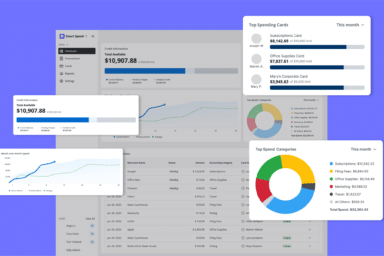Managing a Small Law Firm: 3 Tips for Efficient Law Firm Oversight
Sep 24, 2019
| 5 min readRunning a law firm is no small feat. You’re tasked with tracking deadlines, overseeing attorney and staff performance, bringing in new business, managing law firm financials, ensuring client satisfaction, and much, much more.
Sometimes all of your responsibilities can seem overwhelming. Fortunately, there are steps you can take to streamline law firm oversight and make sure that everything gets done in a timely fashion. And if you’re looking for tips to do just that, then you’ve come to the right place!
Over the past month or so, Heidi Alexander has written a number of guest blog posts on law firm oversight. In them she provided lots of insight and advice on effective, efficient law firm oversight. Here are her top 3 tips.
Run your law firm like a business
According to Heidi, it’s imperative to run your law firm just as you would any other business. She makes the case in this post that if you fail to do so, your firm will likely fail. She explains that means “not only doing the legal work, but devoting significant time to your operations. This requires development and management of operational systems, including workflow processes and procedures, finances, staffing, client service, and more.”
How exactly do you go about doing that? By collecting data and making informed business decisions based on that data:
How can a firm make a decision as to whether to renew a lease without information about their financial position? How can a firm determine whether their workload requires and can sustain a new staff member without tracking case status and profitability? How can a firm decide whether to drop a certain practice area or add a new one without data on the profitability of different practice areas? How can managers decide whether to increase pay or give bonuses without data on productivity and case flow? Finally, how can managers prevent ethical issues such as IOLTA mismanagement or missed deadlines without active oversight of all systems?
There are lots of ways to get the data that you need to inform your decision making. As you’ll learn below, opens lines of communication are an important part of that equation.
Communication is the key to managerial oversight
In this blog post, Heidi tackles the issue of effective law firm leadership. She explains that law firm leaders have a lot on their plate when it comes to oversight responsibilities: “(F)irm managers…are responsible for overseeing the entire pie – from day to day operations to annual budgets, financial projections, and long term strategic planning.”
According to Heidi, the key to effective law firm oversight is to ensure that there are open lines of communication, something that isn’t always easy to do in busy law firms where staff and attorneys face non-stop stress and deadlines. Nevertheless, it’s an important, achievable goal – as long as you take steps to ensure open communication, including the following recommendations made by Heidi in the post:
- Have an open door policy since doing so allows staff to reach out with questions, thus preventing minor issues from becoming major problems.
- Hold regular staff meetings so that staff feels comfortable coming to their manager to address an issue or answer a question.
- Praise staff members who raised an issue that required a difficult conversation or made you aware of a mistake made by another.
Take advantage of insights and feedback from law firm staff
Piggybacking on the final recommendation above, note that your staff is your best source for information on the daily ins and outs of your firm. As Heidi explains, open lines of communication are beneficial for law firm management and staff: “By ensuring that staff contribute to firm oversight, staff are empowered to help make important decisions and impact the health of the firm, (thus) increas(ing) overall employee well-being and job satisfaction.”
Circling back to the idea that you should run your law firm like a business using relevant data, note that your staff are a great source for much of that data. That’s why Heidi stresses that oversight isn’t just about managing staff, it’s about listening to them:
(O)versight isn’t just about keeping a watchful eye and making sure people are doing what they are supposed to be doing, but a mechanism to manage all the many different pieces that must work together and constantly evolve in order to sustain and advance a well-oiled machine. Staff play an integral role in firm oversight and without it, managers wouldn’t have the data they need to make good decisions and ensure that their firm is on track.
Now that you’re armed with lots of great tips, what are you waiting for? Implement a few of them today and get on the path to more effective oversight. And, for even more advice on how to run your law firm as efficiently as possible, make sure to download this FREE guide today: How to Run Your Law Firm Like a Business.


